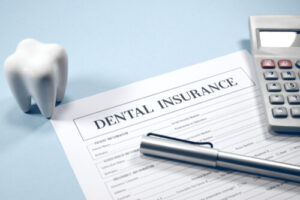Are you considering tooth replacement but feeling unsure about the potential costs? You’re not alone. Dental health is a crucial aspect of our overall well-being, yet the financial aspect often leaves many people with lingering questions. Welcome to our comprehensive guide on tooth replacement costs. Here, we aim to shed light on the complex world of dentistry pricing, break down the costs associated with various tooth replacement options, and provide you with the necessary tools to make an informed decision about your dental health. So, get ready to unlock the mystery behind tooth replacement cost, and remember, a healthy smile is always worth the investment! Visit this website.
What is tooth replacement, and why it’s necessary
Tooth replacement is a dental procedure that replaces missing or severely damaged teeth. It’s an integral part of restorative dentistry and aims to restore the functionality and aesthetics of the patient’s mouth.
There are several reasons why tooth replacement is necessary:
- Health and Functionality: Losing a tooth or multiple teeth can significantly impact the overall functionality of your mouth. It can make eating and speaking difficult, potentially leading to nutritional deficiencies and social discomfort.
- Prevention of Further Damage: When a tooth is missing, the remaining teeth can shift into space over time. This can lead to misalignment, increasing the risk of tooth decay, gum disease, and other oral health problems.
- Aesthetics and Confidence: A missing tooth can affect a person’s appearance and self-confidence. Tooth replacement helps restore a natural-looking smile, enhancing one’s self-esteem.
- Bone Loss Prevention: Tooth loss can lead to bone loss in the jaw over time due to lack of stimulation usually provided by natural teeth. Replacing a lost tooth, particularly with an implant, can help to prevent this bone loss.
Tooth replacement can take various forms, including dental implants, bridges, and dentures. Each of these options has its own benefits and drawbacks, as well as cost considerations, making it important for individuals to discuss their specific needs with their dentist.
Various tooth replacement options
When it comes to tooth replacement, there are several options available. The right choice depends on a variety of factors, including the patient’s oral health, the number of teeth to be replaced, and personal preference. Here are some common tooth replacement options:
- Dental Implants: These are often the top choice for tooth replacement. A dental implant involves the placement of a titanium post into the jawbone, which then serves as an artificial root. An artificial tooth, or crown, is then attached to this post. Implants are durable and function like natural teeth. They also help to prevent bone loss. However, they are also the most expensive option and require a surgical procedure.
Dental Bridges: A bridge is a fixed prosthetic device that’s used to replace one or more missing teeth by joining an artificial tooth to adjacent teeth or implants. It’s a less invasive procedure compared to implants, but the adjacent teeth need to be prepared, which might involve removing some tooth structure.
- Partial Dentures: If several teeth are missing, partial dentures can be a good solution. They are removable appliances that replace missing teeth and restore the appearance and functionality of the mouth. Partial dentures are generally less expensive than implants or bridges.
- Full Dentures: If all of a person’s teeth are missing or need to be removed, full dentures may be recommended. They’re removable devices that replace all the teeth in the upper and/or lower jaw. Full dentures can be challenging to adjust to and may not feel as natural or stable as other options, but they are often the most affordable solution for complete tooth loss.
- Implant-Supported Bridges or Dentures: This hybrid option involves placing implants into the jawbone and then attaching a bridge or denture to them. This option provides more stability and comfort than traditional dentures or bridges but is more expensive.
Each of these options comes with its own set of advantages and disadvantages. It’s important to thoroughly discuss with your dentist to determine the most suitable choice based on your oral health, lifestyle, and budget.
Breaking Down the Costs: An Itemized Look at Tooth Replacement
When estimating the cost of tooth replacement in Australia, it’s important to remember that prices can vary widely based on factors such as the dentist’s expertise, the complexity of the procedure, and your geographic location. However, to give you an idea, here is a general breakdown of the costs involved:
- Dental Implants: A dental implant can cost anywhere from $2,000 to $6,500 per tooth in Australia. This price typically includes the cost of the implant, the abutment (the piece that connects the implant to the crown), and the crown itself. Keep in mind that additional procedures like bone grafts, if needed, will add to the overall dental implants cost.
- Dental Bridges: The cost of a dental bridge can vary based on the type of bridge and the number of teeth it’s replacing. Traditional or cantilever bridges typically cost between $2,000 and $5,000 for a three-unit bridge. The cost includes the crowns for the teeth on either side of the gap and the pontic (false tooth) in between.
- Partial Dentures: Partial dentures are generally less expensive than implants or bridges. The cost can range from $500 to $2,500, depending on the material used and the number of teeth being replaced.
- Full Dentures: Full dentures, which replace all teeth in the upper or lower jaw, can cost anywhere from $1,000 to $5,000. The price can fluctuate based on the materials used, any customization, and whether you’re getting a set for the upper jaw, lower jaw, or both.
- Implant-Supported Bridges or Dentures: The cost for implant-supported bridges or dentures can range from $5,000 to $30,000 or more, depending on the number of implants required, the type of prosthetic (bridge or denture) used, and any additional procedures needed.
Remember, these are rough estimates, and actual costs may differ. Also, these prices do not include any initial consultations, X-rays, or aftercare that may be required, which could add to the total cost. Always seek quotations from various dental professionals and discuss financing options before proceeding with any dental treatment.
Factors Influencing the Cost of Tooth Replacement
There are several factors that can influence the cost of tooth replacement, regardless of the specific method you choose. Here are a few key factors to consider:
- Type of Replacement: As we’ve discussed, the tooth replacement you choose (implants, bridges, dentures) significantly affects the overall cost. For example, the dental implant procedure is generally more expensive than bridges or dentures due to their surgical nature and the materials used.
Geographical Location: Prices for dental procedures can vary based on the cost of living and average price structures in different regions. Urban areas, especially major cities, often have higher prices compared to rural areas.
- Materials Used: The type of materials used in tooth replacement can also influence the cost. For instance, dentures made of more expensive, high-quality materials will cost more than those made with less expensive materials. Similarly, a porcelain crown for a single tooth implant or bridge is more expensive than metal or acrylic ones.
- Dentist’s Expertise: Dentists with more experience or special training may charge more for their services. Additionally, specialists like prosthodontists or oral surgeons typically charge higher fees than general dentists.
- Complexity of the Procedure: If your tooth replacement procedure is complex due to factors like poor oral health, bone loss, or the need for additional procedures like extractions or bone grafts, the cost will be higher.
- Dental Insurance: Depending on your dental insurance plan, some costs might be covered. The extent of the coverage varies widely among insurance providers. Some may cover a portion of the cost of restorative procedures, while others may cover only basic dental care.
- Aftercare and Maintenance: Costs associated with aftercare, including follow-up visits, adjustments, cleaning, and potential replacement of certain parts (like the crown of an implant or a denture), also add to the total expense over time.
Each of these factors can play a significant role in the total cost of tooth replacement. It’s important to discuss these aspects with your dentist or oral surgeon to get a comprehensive understanding of the expected costs associated with your tooth replacement.
How to Plan Financially for Tooth Replacement
Tooth replacement procedures can indeed be a significant investment, but they’re essential for your oral health, overall well-being, and quality of life. Here are some tips to help you budget effectively for your tooth replacement:
- Understand the Costs: First and foremost, get a clear understanding of the total costs involved in your tooth replacement procedure. This should include all associated costs, such as initial consultations, the procedure itself, any necessary follow-up care, and long-term maintenance costs.
- Insurance Check: If you have dental insurance, check with your provider about what aspects of the tooth replacement procedure they cover. Some plans may cover a percentage of the costs. However, remember that you may have to pay the difference, so factor this into your budget.
- Dental Discount Plans: If you don’t have insurance, look into dental discount plans. These aren’t insurance, but they can provide significant discounts on dental procedures, including tooth replacements.
- Payment Plans: Many dental offices offer payment plans that allow you to spread the cost of your treatment over several months or even years. Some may even offer interest-free financing if the balance is paid within a specific timeframe.
- Healthcare Savings Account (HSA) or Flexible Spending Account (FSA): If these are available, consider using them to cover the costs of your tooth replacement. These accounts allow you to set aside pre-tax dollars for healthcare expenses.
- Consider All Options: Talk to your dentist about all the available options and their respective costs. Sometimes a slightly more expensive option may last longer or provide better results, saving you money in the long run.
- Save Over Time: If your tooth replacement isn’t an emergency, start putting away a little money each month towards the procedure. Small savings can add up over time.
- Medical Tax Deduction: Depending on where you live, you may be able to deduct certain medical expenses, including dental, from your taxes.
Remember, investing in your oral health is crucial for your overall health. It’s important to make well-informed decisions and plan ahead to ensure you can comfortably afford your tooth replacement.
Take the next step with DDSS

We understand the financial concerns associated with tooth replacement, and we’re here to guide you through the process, from exploring the most suitable treatment options to helping you understand the costs and financing solutions. Our team of highly skilled and empathetic dental professionals is ready to answer all your queries and provide you with the best care.
Don’t let the fear of the unknown hold you back. The first step can often be the hardest but also the most rewarding. Schedule a consultation with us at DDSS today, and let’s work together to bring back your healthy, vibrant smile. It’s not just about restoring a tooth; it’s about restoring your confidence, health, and joy by smiling.
References:
https://www.forbes.com/health/dental/how-much-dental-implants-cost/
https://www.goodrx.com/health-topic/procedures/dental-implant-cost
https://www.newmouth.com/dentistry/restorative/implants/
https://www.smile.com.au/dental-treatments/replacing-missing-teeth
https://www.teeth.org.au/dental-implants
https://www.healthdirect.gov.au/dental-implant



 Geographical Location: Prices for dental procedures can vary b
Geographical Location: Prices for dental procedures can vary b



